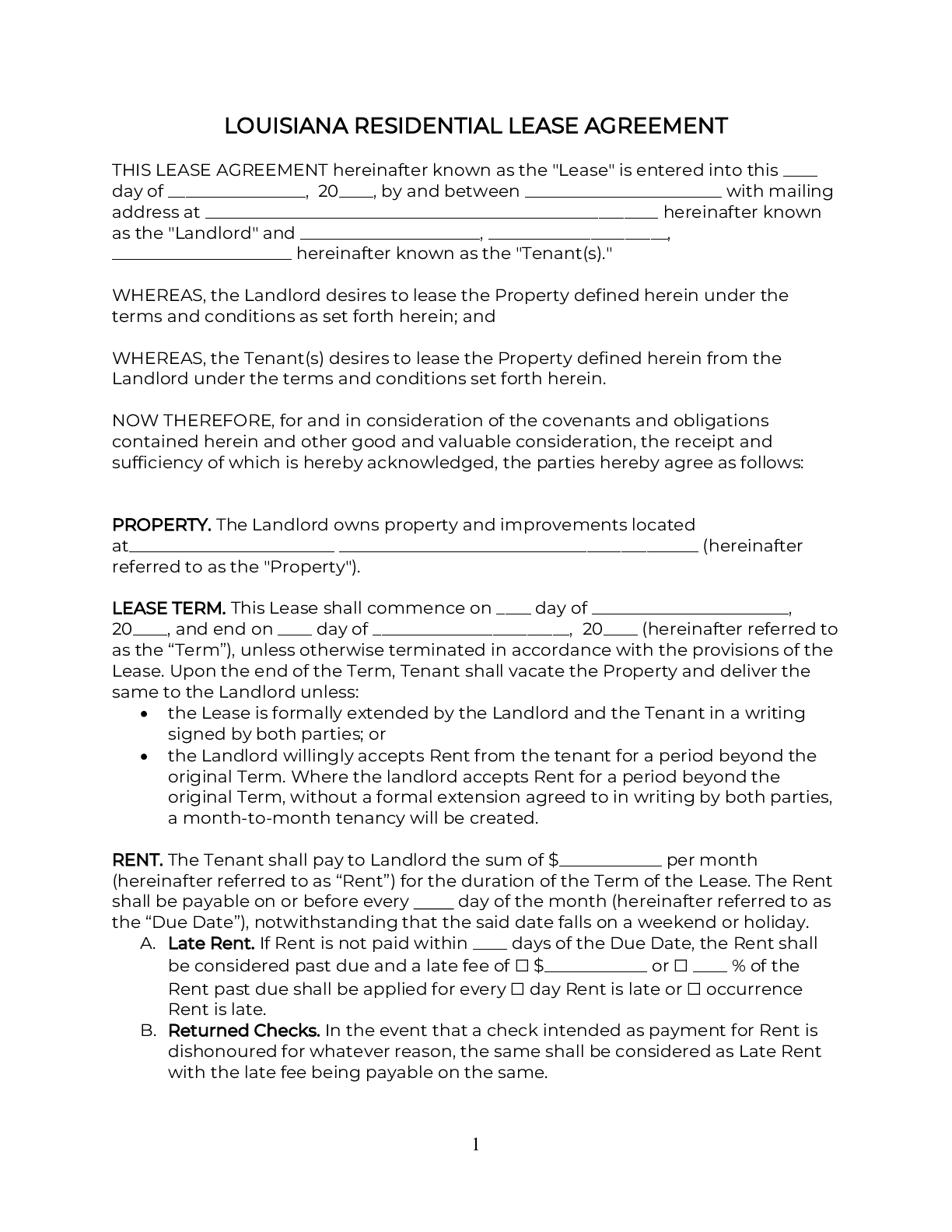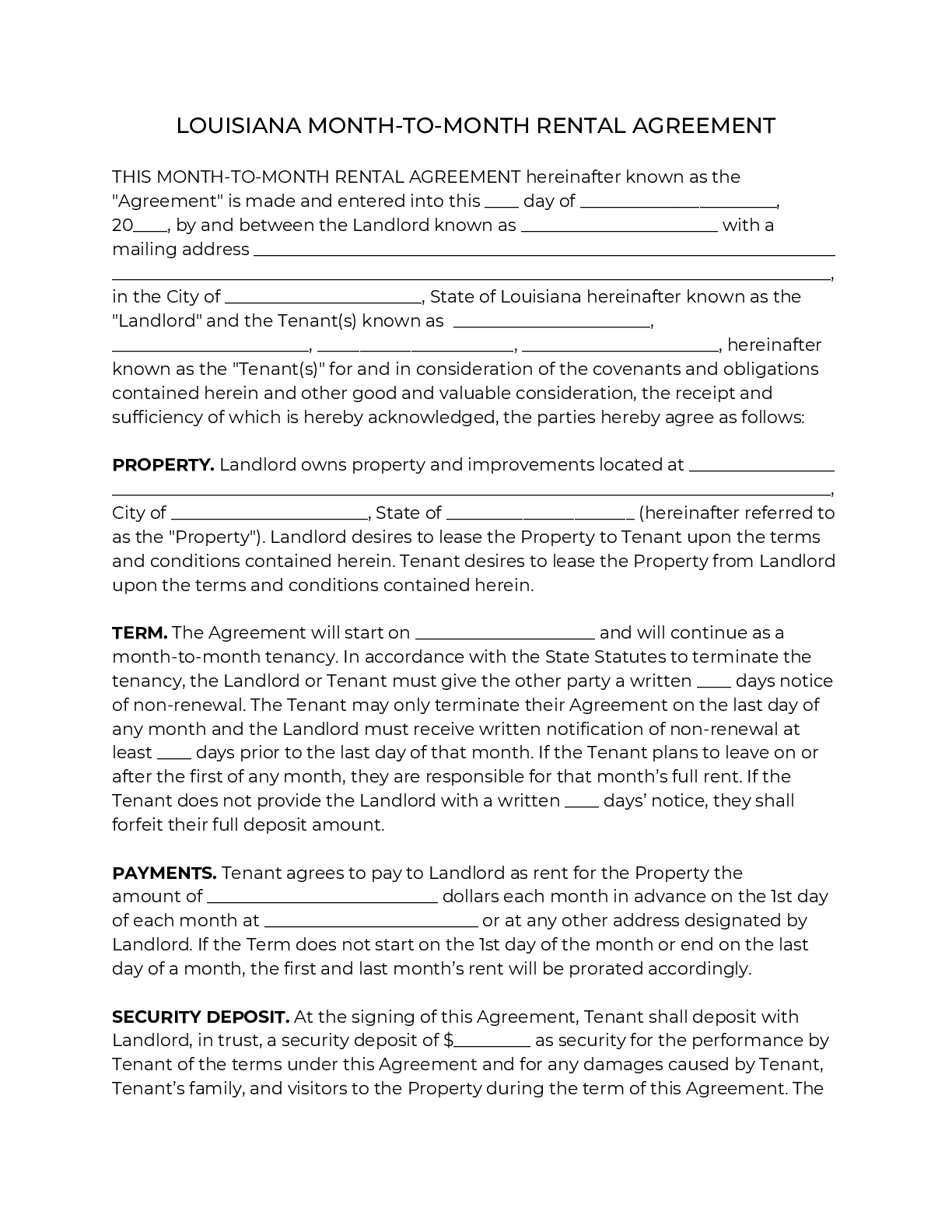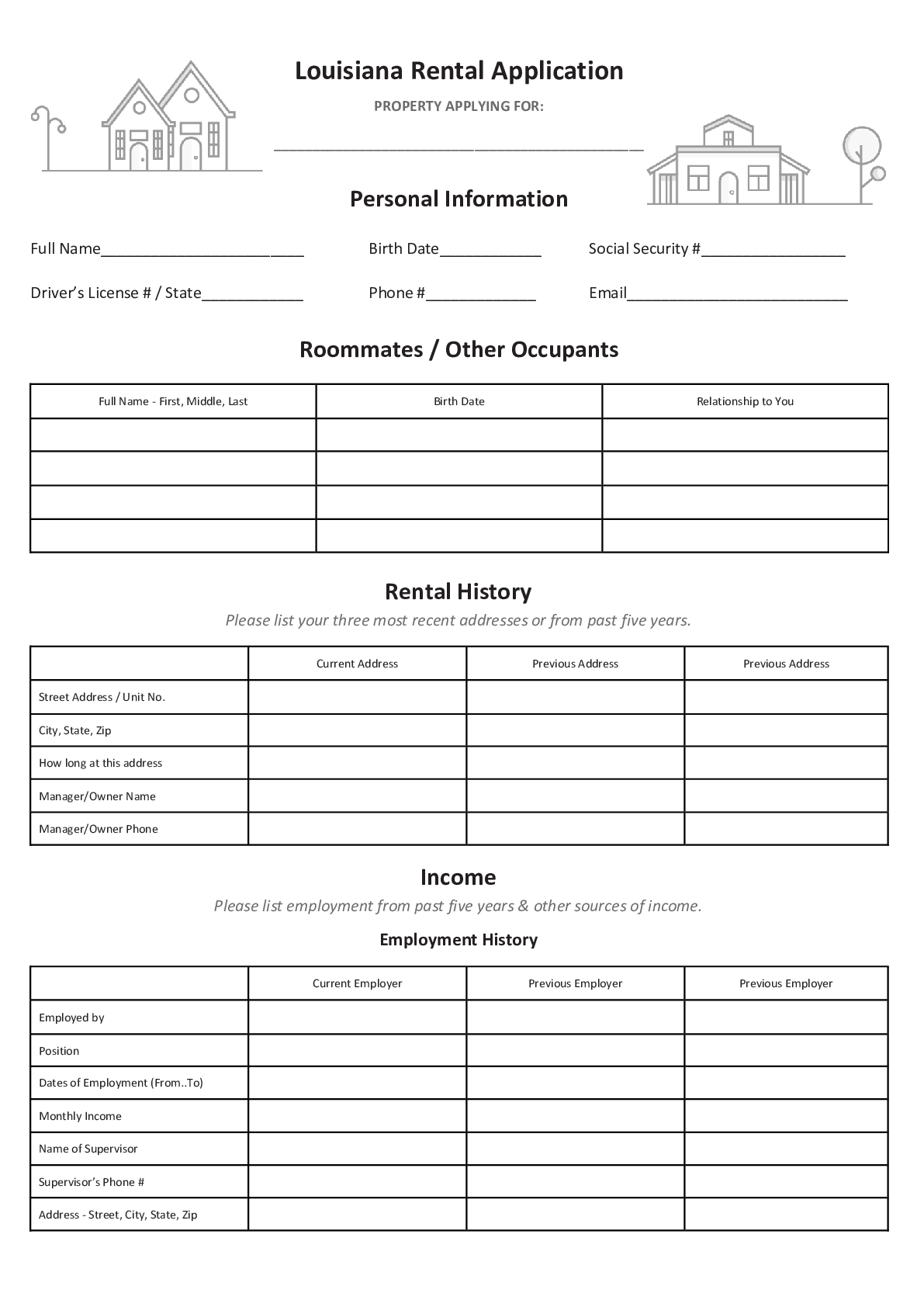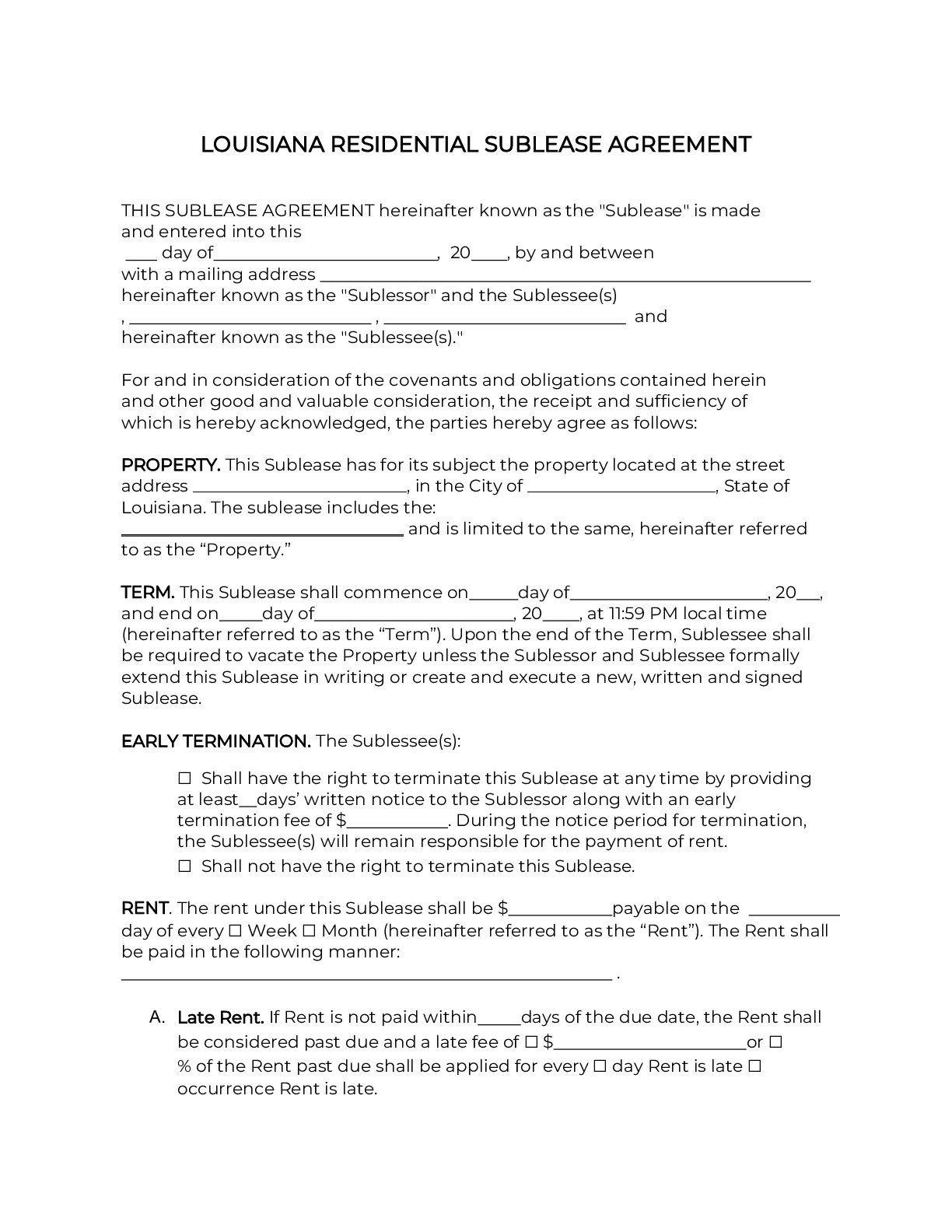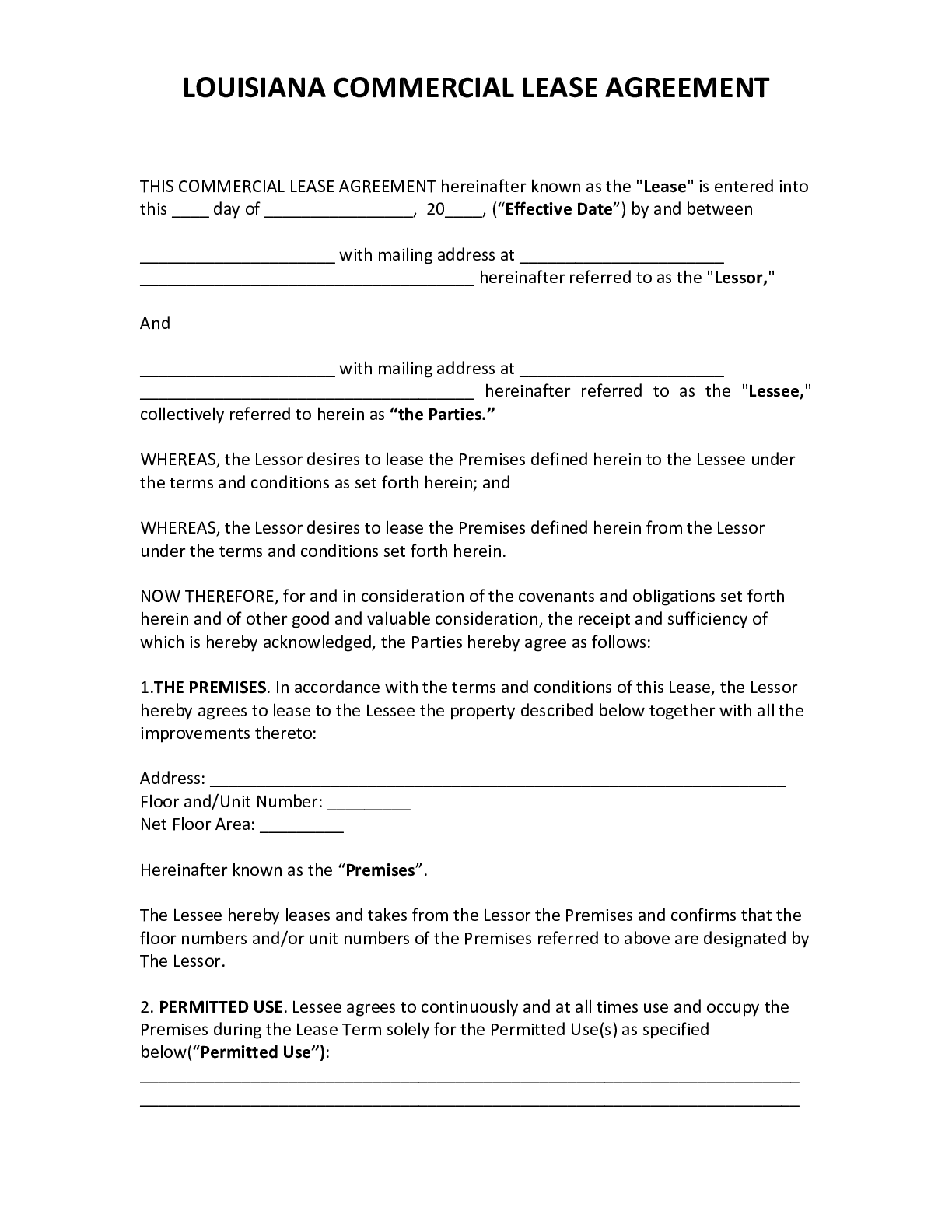A Louisiana rental agreement is a legal contract between a landlord overseeing a rental property and a tenant using the property. Louisiana landlord-tenant law governs and regulates these agreements.
Louisiana Rental Agreement Types
A Louisiana roommate agreement is a legal contract between two or more people (“co-tenants”) who share a rental property according to rules they set, including for things like splitting the rent. This agreement binds the co-tenants living together, and doesn’t include the landlord.
Common Residential Rental Agreements in Louisiana
- New Orleans Metropolitan Association of REALTORS® Residential Lease – This template is for use by REALTORS® Boards members. It is in common use for residential leases throughout Louisiana. The lease provides an extensive list of rules and procedures, such as tenant responsibilities for the individual rental unit.
Louisiana Required Lease Disclosures
- Lead-Based Paint Disclosure (required for some leases) – Landlords must provide an EPA-approved disclosure and informational pamphlet to tenants renting any property built before 1978.
To learn more about required disclosures in Louisiana, click here.
Louisiana Landlord Tenant Laws
- Warranty of Habitability – Louisiana landlords can only rent out habitable property. This means providing certain basic health and safety features like heat, plumbing, and electricity. Landlords must repair any issues within a reasonable time after proper notice. Failure to repair lets a tenant sue the landlord or terminate the lease. Tenants usually can’t repair and deduct, or withhold rent.
- Evictions – Louisiana landlords may evict for rent nonpayment, lease violations, or illegal acts, among other things. Before filing eviction, landlords must serve tenants with prior notice to pay, comply or quit, depending on the eviction type. This means most evictions in Louisiana take between a few days to a few months.
- Security Deposits – Louisiana does not cap security deposits. When a lease ends, a landlord has one month to return any unused portion of a tenant’s deposit.
- Lease Termination – Louisiana lets tenants end a month-to-month lease with 10 days of advance notice. Terminating a fixed-term lease usually requires active military duty, landlord harassment, uninhabitable property, or domestic abuse.
- Rent Increases and Fees – Louisiana landlords may increase rent at will, by any amount. Late fees are determine by what’s agreed in the lease. Returned check fees are capped at $25 or 5% of the amount of the check (whichever is greater). The fee amount must be agreed in the lease or posted in a high visibility place at landlord’s business address.
- Landlord Entry – Louisiana landlords may enter rental property for reasonable business purposes like maintenance, inspections, and property showings. Before entering, they must provide reasonable advance notice (by custom, at least 24 hours) and enter at reasonable times.
- Settling Legal Disputes – Louisiana lets small claims courts hear landlord-tenant disputes, as long as the amount in controversy is under $5,000. Unlike many states, Louisiana allows evictions in small claims. Most landlord-tenant issues in Louisiana have a 10-year statute of limitations, depending on parish.
To learn more about landlord tenant laws in Louisiana, click here.
Sources
- 1 La. Stat. tit. 9 § 2782(B)
-
The payee, his agent or assignee, or a holder may charge the drawer of the check a service charge not to exceed twenty-five dollars or five percent of the face amount of the check, whichever is greater, when making written demand for payment. The payee shall post a notice indicating the amount to be charged a drawer of a check if the check is returned for nonsufficient funds. Such notice shall be posted on the payee’s business premises in a convenient and conspicuous place where persons entering the location will see it.
Source Link




